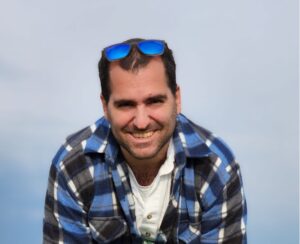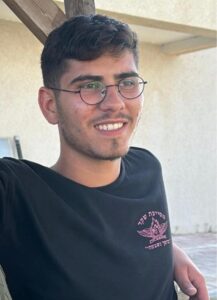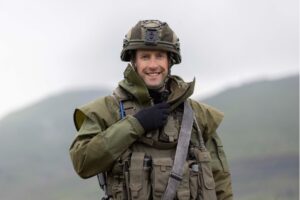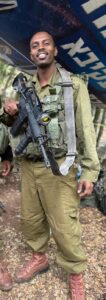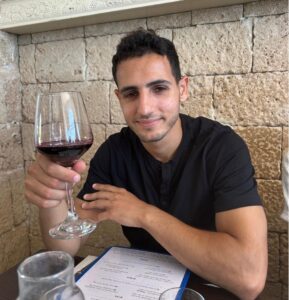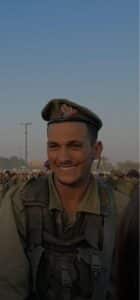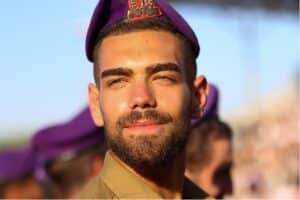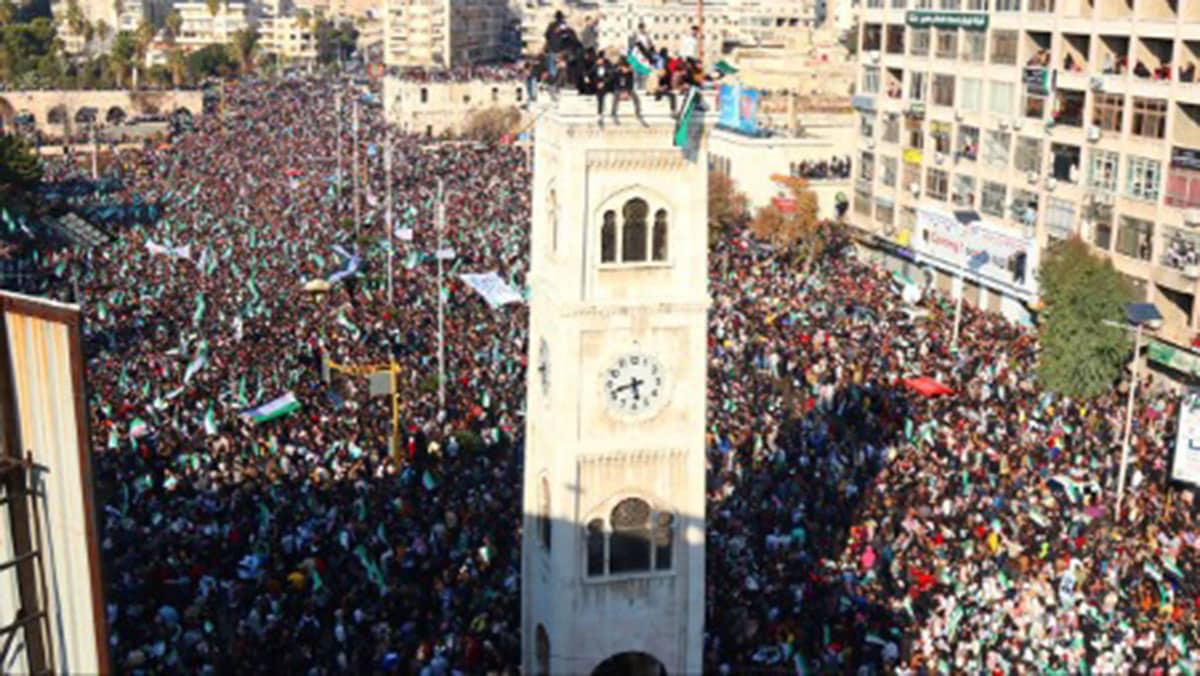
Overview
- Mossad Chief David Barnea held discussions with the Qatari Prime Minister, as Qatar resumes its role as a mediator in hostage negotiations.
- Prime Minister Netanyahu emphasized the focus on Israel’s security, stating that strategic weapons or facilities threatening Israel would be targeted, and any regime permitting Iranian arms transfers would face severe consequences.
- Overall, 70-80% of Assad’s military capacity was reportedly eliminated.
- Defense Minister Israel Katz ordered preparations for maintaining Israeli control of the Syrian Hermon area throughout the winter months, ensuring control of this 235-square-kilometer strip until an agreement with the new Syrian government can be reached.
- Russian military assets, including S-400 systems, were moved from southern and eastern Syria to coastal areas to board military flights returning equipment to Russia.
- Central Command leader General Michael Kurilla visited Israel at the invitation of IDF Chief of Staff Herzi Halevi.
- The E3 countries (Britain, France, and Germany) informed the UN Security Council of their readiness to activate the SnapBack mechanism, which would reimpose full sanctions on Iran due to its violations of the nuclear deal and acceleration of uranium enrichment.
- The Wall Street Journal reported that the Trump administration was preparing to strike Iran’s nuclear facilities.
International
- A political source outlined Israel’s three main objectives in Syria:
- Control Strategic Terrain: Israel aims to secure areas between 500 meters and a few kilometers of the Israeli border, for fire control and observation.
- Neutralize Strategic Weapons: This includes eliminating chemical weapon capabilities.
- Protect Minorities: While not a direct Israeli priority, the global community expects the protection of minorities, which Israel acknowledges.
- U.S. Secretary of Defense Lloyd Austin emphasized to Israel’s Defense Minister Israel Katz the importance of “close consultation” regarding developments in Syria following Bashar al-Assad’s fall. Austin reiterated U.S. support for a “peaceful and inclusive political transition” and the mission to prevent ISIS from regaining a foothold.
- UN Secretary-General António Guterres opposed Israel’s control over buffer zones in the Golan Heights, deeming it a territorial violation.
- France called for Israel to withdraw, citing violations of the 1974 disengagement agreement.
- White House National Security Council spokesperson John Kirby described Israeli actions in the Golan Heights as urgent efforts to neutralize immediate threats.
- He noted lingering concerns about Assad’s retained chemical weapon stockpiles.
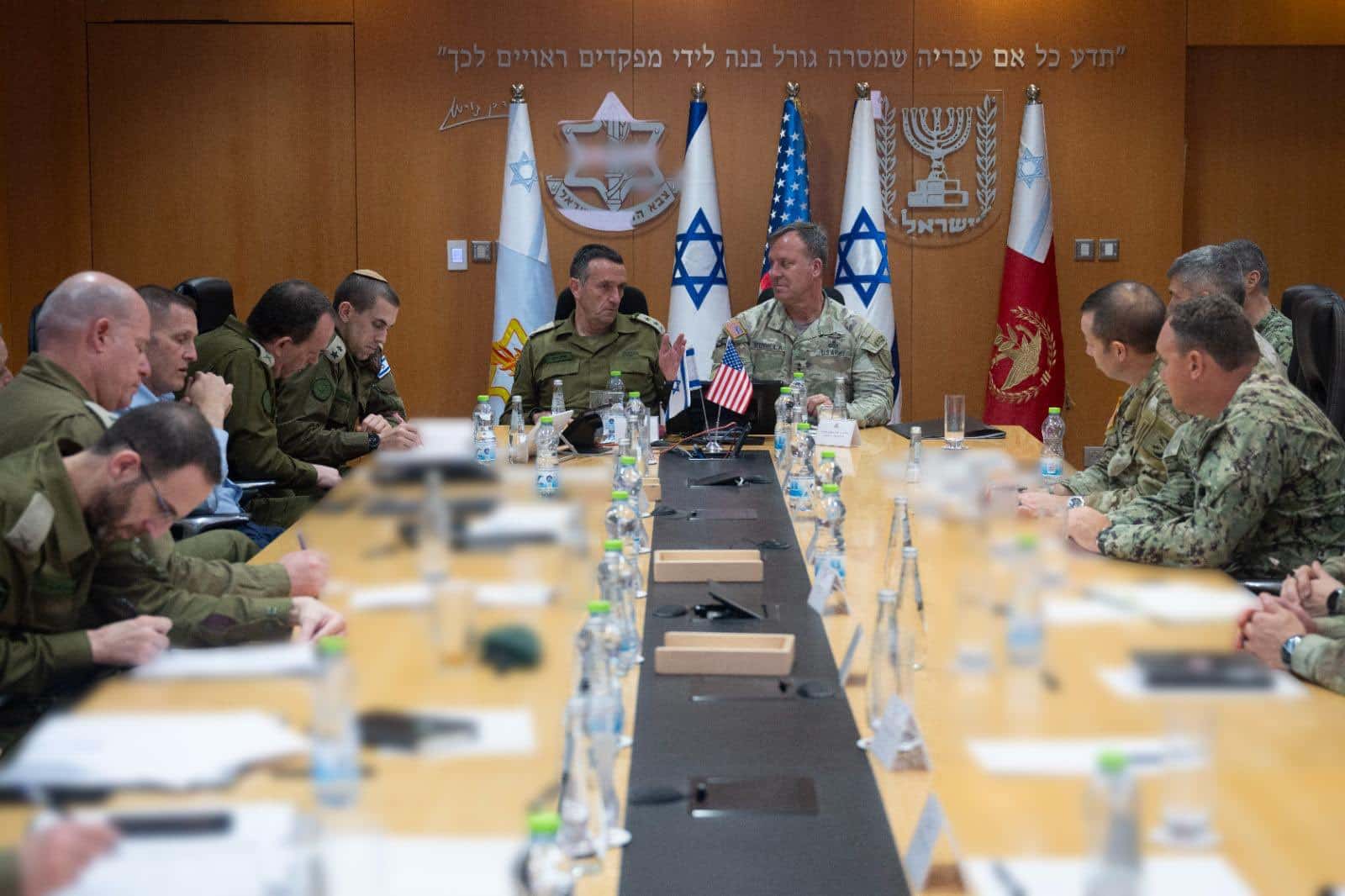
The Commander of Centcom, General Michael “Erik” Kurilla, arrived in Israel as the official guest of IDF Chief of the General Staff LTG Herzi Halevi. | Source: IDF Spokesperson
Syria
IDF Engagement
- Israeli Operation “Arrow of Bashan” destroyed:
- 86% of Syrian air defense systems
- 90% of MiG-29 jets and 80% of Su-24 jets
- Two airbases, with multiple squadrons destroyed on the ground, weapons depots and an airport.
- 61% of Assad’s air force capabilities
- 1,800 munitions targeted 500 sites, including 14 of 20 Syrian naval missile ships
- Overall, 70-80% of Assad’s military capacity was reportedly eliminated.
- In addition, U.S. airstrikes targeted 75 ISIS sites in central Syria and warned against collaboration with ISIS, demonstrating considerable coordination between the Israeli and US Air Forces.
Strategic Implications
- The near-total elimination of Syrian air defenses provides the Israeli Air Force with a broader freedom of operations across the Levant and Iran. Without anti-aircraft defenses Syria and Iran are naked to Israeli attacks in the future. This significantly enhances Israel’s strategic position in the region. Israel can enjoy air superiority over the Levant and Iran, enabling more effective defense against militia threats and potential strikes within Iran. Consequently, Israel’s deterrence capabilities are substantially strengthened.
- Prime Minister Netanyahu emphasized the focus on Israel’s security, stating that strategic weapons or facilities threatening Israel would be targeted, and any regime permitting Iranian arms transfers would face severe consequences.
IDF Taking Control of the Buffer Zone
- The “Golan Division” Task Force, composed of armor, engineering, the Paratroopers Brigade, and the Egoz Unit, is conducting forward defense missions in the buffer zone.
- Soldiers have taken observation points on elevated areas that previously overlooked the Golan Heights but now oversee the Bashan region of Syria.
- During searches, paratroopers discovered weapons including anti-tank missiles, firearms, vests, ammunition, and other military equipment intended for use against Israel.
- The task force commander stated their mission is strictly defensive, with no intention of intervening in Syrian affairs.
- Combat engineering units are constructing a “New East” barrier.
- Defense Minister Israel Katz ordered preparations for maintaining Israeli control of the Syrian Hermon area throughout the winter months, ensuring control of this 235-square-kilometer strip until an agreement with the new Syrian government can be reached.
International Reponses to Developments
- For the first time, the transitional Syrian government addressed the Israeli strikes, sending a letter to the UN Security Council demanding an end to the airstrikes and the “occupation” of the Syrian Golan Heights.
- The UN Secretary-General made similar calls, and the Turkish Foreign Minister condemned what he referred to as the “Israeli occupation.”
- The Turkish Embassy in Damascus is set to reopen on December 14, after being closed since 2012.
- S. Secretary of State Antony Blinken visited Ankara, urging Turkey not to act against the Kurds, while Turkey reiterated its goal of defeating the YPG a US backed Kurdish militant group operating in Syria.
- The U.S., Italy, and other Western countries are engaging with Syria’s new government, led by Hay’at Tahrir al-Sham (HTS), previously associated with al-Qaeda. Discussions are ongoing to potentially remove HTS from terrorism lists.
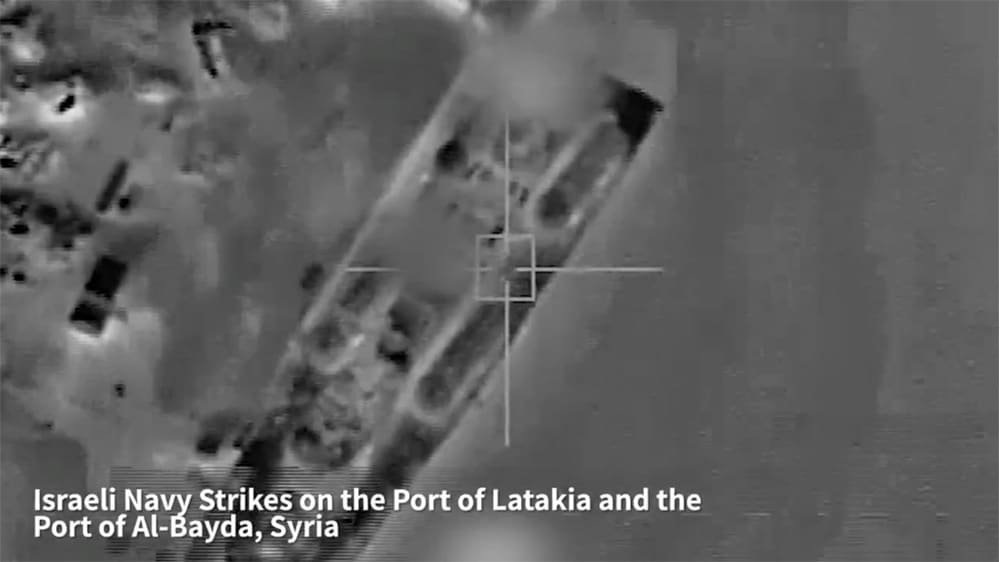
Ethnic Tensions in Syria
- A senior Sunni cleric called for the persecution of all “Nusayris” (a derogatory term for Alawites) involved in the killing of Muslims.
- Lynchings of former Syrian Shabiha members, destruction of statues, and desecration of Hafez al-Assad’s grave have sparked sectarian tensions.
- The desecration of the Shiite shrine “Sayyidah Zaynab” led to warnings from militias like Harakat Hezbollah al-Nujaba against further acts of desecration.
- In a widely circulated video, Druze residents from Hader near the Israeli border requested annexation to Israel to avoid living under Syria’s new regime.
Statements from Tahrir al-Sham (HTS)
- HTS issued instructions forbidding harm to minorities, women, journalists, or former Assad regime members and called for respect of the public order.
- HTS leader al-Julani urged fighters not to fire celebratory gunshots and to maintain public order.
- This statement followed reports of lynchings, sectarian harassment, and Sunni militants entering the Sayyida Zeinab Shia shrine, in Damascus.
- Syrian rebels set fire to Hafez al-Assad’s mausoleum in Qardaha.
- Rebels gained control over the Assad family’s lucrative drug trade. Maher al-Assad, who commanded Syria’s 4th Division, smuggled Captagon to Jordan, Saudi Arabia, and beyond. Estimates suggest the drug trade generated $5 billion annually.
Protests and Kurdish Defections
- In Raqqa, mixed Arab-Kurdish protests demanded governance under HTS.
- Hundreds of SDF (Syrian Democratic Forces) members defected to the Sunni organization.
- A ceasefire between the SDF and the Turkish-backed Syrian National Army is in effect until December 16, with potential for further clashes when the ceasefire expires.
- In Kurdish regions, protests erupted against SDF governance, with demands for integration into the new Syrian state.
- The Turkish-backed Syrian National Army repelled an SDF counteroffensive in Manbij.
- Turkish drones and artillery continue to support attacks against Kurdish fighters.
The SDF faces two critical threats
- A potential Turkish-backed invasion to expel the YPG and PKK from northern Syria.
- Internal disintegration, as Arab militias defect to HTS and cities like Deir ez-Zor fall to Sunni control.
- In response, SDF leader Mazloum Abdi stated efforts to integrate into Syria’s political and military system, though al-Julani may resist such integration.
Transitional Syrian Government
- The new Syrian government under al-Julani established control over the state news agency SANA, Police forces and numerous governing institutions.
- The Ba’ath Party announced the cessation of all activities, signaling the end of secular Arab nationalism.
- Al-Julani appointed Mohammad al-Bashir as Prime Minister of the transitional government.
- Public sector employment for 400,000 workers was prioritized to maintain stability.
- A general amnesty was granted to former Assad conscripts, with efforts underway to restore governance.
- HTS is working to renew government functions without a purge of Ba’ath Party members to avoid governance gaps.
- Al-Julani promised accountability for officers involved in torture under Assad but faces risks of uncontrolled sectarian revenge.
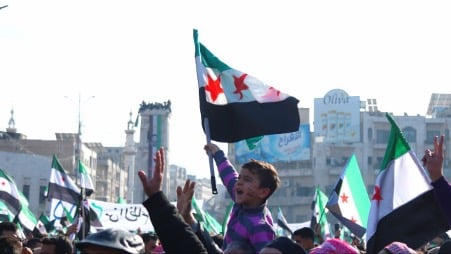
Challenges for al-Julani
- Sectarian tensions and potential ethnic retribution, particularly against Alawites and Shiites, could destabilize the government.
- HTS pledged to eradicate Syria’s drug trade, targeting Captagon production—a multi-billion-dollar industry.
Assad’s Patron’s Reactions
- Russian military assets, including S-400 systems, were moved from southern and eastern Syria to coastal areas, with military flights returning equipment to Russia.
- Moscow is attempting to maintain its bases in Tartus and Hmeimim but risks losing its influence in Syria as it tries to engage with the new Syrian government.
- Reports suggest internal debates in Iran about re-engaging with the new Syrian government or inciting rebellion against it.
- Over 4,000 Iranian civilians and military personnel have left Syria.
- Iranian officials blame Assad for Syria’s loss, leading to calls for accountability within Tehran.
- The international response remains mixed, with Iran and Russia seeking to salvage influence, while Turkey pushes for a security buffer zone.
Gaza Strip
Diplomatic
Disputes persist between Hamas and Fatah over the formation of a “Community Support Committee” to govern Gaza post-war.
Senior Hamas member Basem Naim expressed disappointment at Fatah’s opposition, accusing it of attempting to impose its own government under Mohammad Mustafa, which he claimed lacks domestic and international legitimacy.
Hostage Deal
Hostage Negotiations
- Mossad Chief David Barnea held discussions with the Qatari Prime Minister Mohammed bin Abdulrahman bin Jassim Al Thani, as Qatar resumes its role as a mediator in hostage negotiations.
- Hamas has dropped its demand for a full Israeli withdrawal and expressed readiness to provide a list of hostages.
- According to a report by Axios, Prime Minister Netanyahu informed U.S. National Security Advisor Jake Sullivan that Israel is ready for a deal at any time.
- The Deputy Secretary-General of Islamic Jihad also expressed a willingness to negotiate an agreement.
- Shin Bet Chief Ronen Bar and IDF Chief of Staff Lieutenant General Herzi Halevi visited Egypt for discussions with their counterparts on regional security issues. The talks included:
- Negotiations for a hostage release deal.
- Matters related to the Philadelphi Corridor.
- Broader discussions on the Middle East and specifically Syria following the fall of Bashar al-Assad’s regime.
Hamas is gathering information on the condition of Israeli hostages as part of preparations for a potential prisoner exchange. Efforts are reportedly, also underway to locate the bodies of hostages. Hamas is insisting on a ceasefire to facilitate these efforts.
A Hamas official stated that without an IDF withdrawal and freedom of movement between northern and southern Gaza, it would be difficult to coordinate with all hostage-holding groups.
- There are talks about Phase 1: Release of elderly, sick, and female hostages. However, no names of Palestinian prisoners to be released have been shared.
Operational
- Division 162 is actively working to destroy infrastructure and buildings in Jabalia and Beit Lahia, north of the Mefalsim Corridor.
- Hamas and Islamic Jihad planted explosives and launched anti-tank attacks against the forces. According to local reports, exchanges of fire occurred in: Northern Nuseirat Camp, Eastern Marazi Camp and Deir al-Balah city.
- The flattening and destruction of buildings in Jabalia and areas north of Mefalsim continue, as well as operations in eastern Rafah.
- Aerial forces, directed by the Gaza Division, carried out an airstrike that eliminated the commander of the Nukhba Battalion of Hamas’ Zaytoun Brigade, who orchestrated the raid on the Pega post during the October 7 massacre, resulting in 14 fatalities. This commander also led attacks against the IDF throughout the ongoing campaign.
- Another airstrike, directed by Division 162, killed the commander of Hamas’ paragliding unit.
- 70 days have passed since the beginning of the third Battle of Jabalia, during which approximately 2,000 militants have been eliminated and around 1,500 have been captured.
- The Air Force struck Nuseirat Camp, eliminating a company commander in Islamic Jihad. Explosives stored in the building caused secondary explosions, damaging surrounding buildings.
- The Air Force targeted a school in Gaza City, neutralizing a terror cell that was planning imminent attacks.
- IDF dropped propaganda leaflets from the air to deter residents from joining Hamas, which is attempting to recruit hundreds of new militants. The leaflets included references to Hamas’ responsibility for Gaza’s destruction.
- In response to rockets fired by Islamic Jihad toward the Gaza envelope and Lachish region: The Air Force struck multiple military sites and weapons depots of Hamas and Islamic Jihad across Gaza. One target was located 50 meters from international aid warehouses.
- The IDF spokesperson in Arabic directed residents of six city blocks to evacuate suggesting upcoming military operations in the Rimal and Sabra neighborhoods.
- Based on intelligence: Two locations along the humanitarian corridor starting at Kerem Shalom Crossing were targeted. Fifteen armed Hamas operatives who were planning to seize food trucks were eliminated.
Lebanon
Diplomatic
Ceasefire Enforcement
- Representatives from IDF, the Lebanese Army, UNIFIL, the U.S., and France met in Naqoura to establish a stabilization mechanism.
- According to the U.S. Embassy in Beirut, these meetings will be held regularly.
- The Lebanese Army and UNIFIL were deployed in five locations around Al-Khiyam to clear mines and unexploded ordnance.
- Lebanese forces reportedly also took over former Hezbollah positions in Ein Arab and Marjayoun.
- Between December 11-13, Central Command leader General Michael Kurilla visited Israel at the invitation of IDF Chief of Staff Herzi Halevi and met with Defense Minister Israel Katz, Northern Command Chief Ori Gordin and Air Force Commander Tomer Bar.
- The discussions focused on coordination between the air forces of the two countries and addressed a range of topics which included Lebanon, Syria, Iran, as well as the enforcement mechanism in Lebanon.
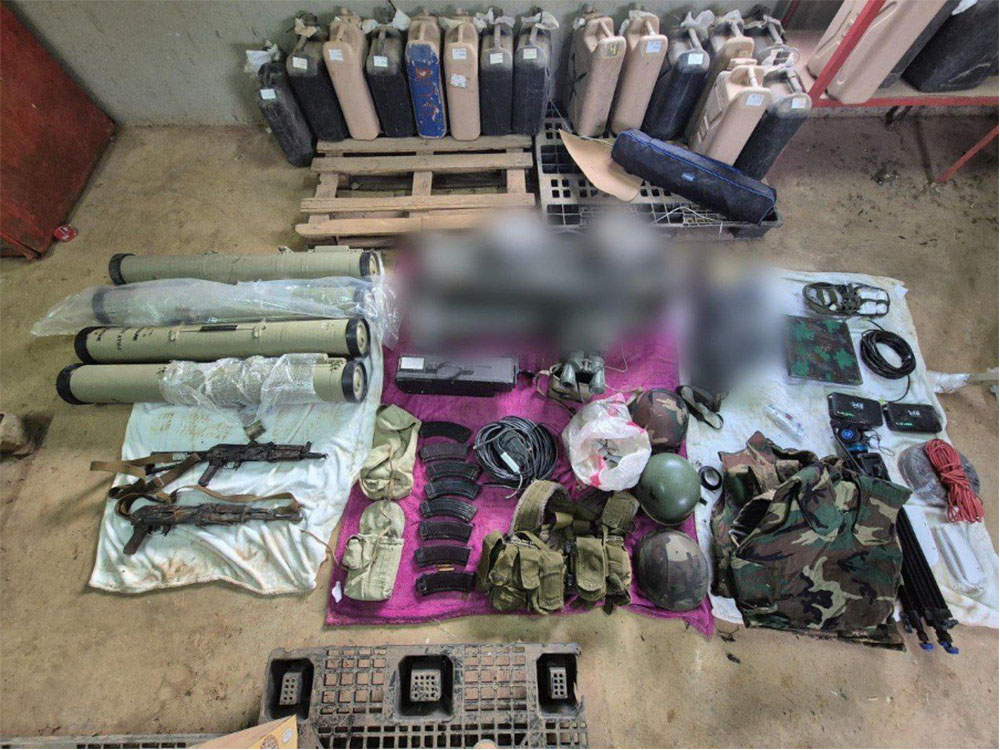
Operational
Targeted Strikes Against Hezbollah Operatives
- Under the direction of Division 98, militants arriving at a weapons depot were attacked.
As part of the enforcement operations, IDF forces conducted scans in dense areas. The “Nesher” task force (reserve paratroopers) discovered an underground pathway filled with Hezbollah weapons, previously rigged with explosives by the force and later abandoned. Upon the soldiers’ entry into the pathway, the booby-trap was triggered.
It took 12 hours to retrieve the bodies of the fallen soldiers.
- As Shiites in Lebanon hold mass funerals, the lack of broad media coverage or empathy in the Arab world is a stark contrast to 2006. Sunnis and Christians in Lebanon support the victory of Syrian rebels. Even Hamas congratulated Sunnis on their success. Hezbollah has lost legitimacy, and as a result there is less interest in their activities or funerals in the wider Arab world..
According to the Lebanese newspaper Al-Akhbar:
- Building and infrastructure destruction is reported in Marun al-Ras, Ramia, and Marwahin, with expanded operations in the area between Ramia and Marwahin.
- Artillery fire is ongoing in Bint Jbeil and a nearby northern village, as well as in two villages in the western parts of South Lebanon.
- There are reports in Lebanese media of an IDF withdrawal from Al-Khiyam with UN forces replacing them in the area. Yet the IDF continues to attack terrorists from the air in the region.
- During search operations in towns close to the Israeli border, the IDF “Hiram” task force uncovered large quantities of Hezbollah weapons, including: Anti-tank launchers, Kalashnikov rifles, Kornet missiles, RPGs, and Mortar shells.
- The Air Force conducted multiple strikes in southern Lebanon, including near Sidon, north of the Litani River, destroying budlings and terrorist infrastructure. According to reports, an Israeli drone strike near the Litani reportedly caused fatalities.
- Launchers in Lebanon prepared for attacks on Israel were destroyed.
- IDF Arabic media warned Lebanese residents not to return to restricted areas for their safety.
- Lebanese Army Chief Joseph Aoun met in Beirut with Senior Hezbollah official Wafiq Safka and the security advisor to the Speaker of Parliament. They decided that the Lebanese Army and Hezbollah would remain coordinated during the implementation of the ceasefire and UN Resolution 1701.
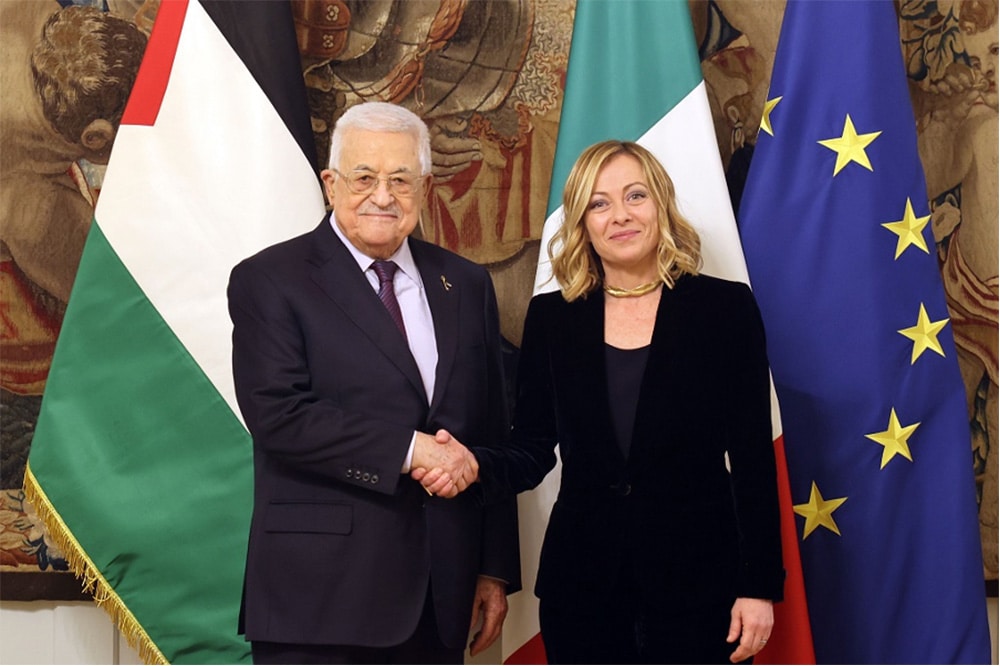
Judea and Samaria
Palestinian Authority
- Palestinian Finance Minister Omar Al-Bitar received $10 million from Saudi Arabia in Amman, Jordan. The aid is part of a $40 million annual support package for 2024 aimed at alleviating the Palestinian Authority’s financial crisis.
- Palestinian Authority President Mahmoud Abbas inaugurated the new Palestinian Embassy in the Vatican.
- Abbas also met: Italian Prime Minister Giorgia Meloni, Italian President Sergio Mattarella, Pope Francis, Cardinal Pietro Parolin, the Vatican’s Secretary of State.
Operation “Homeland Defense” in Jenin
- On Friday morning, the Palestinian Authority launched an operation in Jenin named “Homeland Defense.”
- Intense exchanges of fire occurred throughout the day against Islamic Jihad and Hamas cells. Local residents burned tires and blocked roads.
- A senior militant from Islamic Jihad’s Jenin Battalion, who was also wanted by the IDF, was killed.
- Violent clashes erupted in Jenin and Tulkarm between Palestinian Authority security forces and Islamic Jihad militants. There were casualties during the clashes.
- Hamas called on the population to rise against the Palestinian Authority, but there was little response.
- Following the arrest of an Islamic Jihad operative in Jenin by Palestinian Authority security forces: Islamic Jihad escalated tensions by seizing a police jeep and carrying out a bombing. Militants detonated a car bomb near a police station, injuring three Palestinian policemen and two civilians. This violent act underscores the growing boldness of these groups. This type of attack on the PA is pretty rare.
- Palestinian Authority forces raided the Jenin Refugee Camp and conducted arrests, engaging in firefights, and neutralized explosive devices on camp roads.
- This is an unusual show of force by the PA and it appears that this is a real effort by the PA to assert its authority in the area.
The recent clashes between the Palestinian Authority (PA) and militant groups in Jenin mark a significant escalation not seen in years. The PA is asserting its authority by conducting operations against militants, a role traditionally undertaken by the Israel Defense Forces (IDF). This escalation was triggered by militants seizing PA security vehicles and parading them through Jenin while displaying Islamic Jihad flags, an act the PA could not ignore.
IDF Operations
- This week, the IDF detained 50 wanted individuals, 8 weapons were confiscated, Hundreds of thousands of shekels in terrorist funds were seized.
- Defense Minister Israel Katz ordered increased security readiness in settlements and roads across Judea and Samaria as there are indications that this front would get even hotter in the near future.
- A terrorist carried out a shooting attack in Gush Etzion: the attacker fired 19 bullets at a bus. Three civilians were injured and a 10-year-old boy was killed.
- The home of the terrorist from Gush Etzion was mapped for demolition.
- Defense Minister Israel Katz visited the Jordan border and instructed authorities to expedite the construction of a border fence. The aim is to prevent the smuggling of Iranian weapons into the Judea and Samaria via Jordan.
Other Security Incidents
- In Bnei Brak: An Israeli Arab carried out a car-ramming attack, lightly injuring a Jewish civilian.
- In Karmiel: An Israeli Arab carried out a stabbing attack at a police station, injuring two people.
- At Joseph’s Tomb: Three Breslov Hasidim entered the site without coordination.
Militants opened fire on them, injuring all three.
Iran
Response to the Assad Debacle
- Discontent is growing within the Revolutionary Guards and the Basij forces.
- Members of these groups were shocked by Iran’s abandonment of Assad after sacrificing 6,000 fighters and billions of dollars to support him during the Syrian civil war.
- This has damaged morale and the credibility of the Ayatollah regime, even among its staunchest supporters.
- A senior Iranian parliamentarian tweeted that Iran must begin nuclear testing to restore its deterrence and revive the “Resistance Axis.”
- Prime Minister Netanyahu stated that Iran’s investments in Syria have gone to waste.
He emphasized the strategic importance of the Golan Heights for Israel’s security and attributed Assad’s regime collapse to the direct blows inflicted by Israel on Hamas, Hezbollah, and Iran.
- Netanyahu highlighted that Iran invested: $30 billion in Syria, $20 billion in Lebanon, and billions more in Gaza. He stated that all of these investments were wasted and could have been used for the benefit of Iranian citizens. He indirectly called for Iranians to rise up against their regime.
- Ayatollah Khamenei accused Israel, the U.S., and a regional country (implicitly Turkey) of being responsible for Assad’s fall.
- He claimed that the “Resistance Axis” would emerge stronger.
- The E3 countries (Britain, France, and Germany) informed the UN Security Council of their readiness to activate the SnapBack mechanism, which would reimpose full sanctions on Iran due to its violations of the nuclear deal and acceleration of uranium enrichment.
- Iran’s Foreign Minister held talks with the IAEA chairman to prevent the imposition of new sanctions over its nuclear program.
- The Wall Street Journal reported that the Trump administration was preparing to strike Iran’s nuclear facilities.
Iran and Syrian Opposition
- A senior Iranian official revealed direct communication channels with Syrian opposition leaders, signaling openness to dialogue with Syria’s new leadership.
- Iran is seeking to prevent hostility and is favoring the stabilization of relations with the new leaders of Syria who had been their enemies until the previous week.
- Ismail Qaani, commander of Iran’s Quds Force, met with pro-Iran militia leaders in Iraq to discuss developments in Syria and Israeli operations.
- Some Iraqi commanders declared neutrality, refusing involvement.
With the severe blow to Iran’s “axis of resistance” both physically, with the fall of Syria, and reputationally -the lackluster Iranian repose and lack of serious help to save the Assad regime, Iran is eyeing its nuclear development program as its main mechanism to save face. Iran seems to change the tone in its diplomacy with the West hopping to reach a new nuclear deal, as it sends its diplomats to send messages of supposed moderation. This is a hedge strategy for the regime to save itself.
Iran realizes that it is defenseless against an Israeli-American strikes that could take out its nuclear program and possibly even topple the regime. It loses its proxies and now the Iraqi militias refuse to engage in Syria amidst fear from opening another front against Israel or other anti-Iranian forces. It fears of the reinvigoration of protests inside Iran and elsewhere in the middle east as Assad fell, which could topple the mullah regime which is in a weak position. It can play for time by trying to accommodate the West by having the pretense of willingness to reach a nuclear deal with the hopes that the US would restrain Israel from striking inside Iran.
On the other hand, Iran takes more aggressive actions in its nuclear development efforts as this could be the only play to save its deterrence and the regime itself. Iran is weaker than before with the recent failures of its axis, its economy in tatters and dissatisfaction among its people. It could decide that breaking into a bomb is the only path forward to counter these looming threats. As per the International Atomic Energy Agency’s report from October 26, 2024, Iran has accumulated at least 182.3kg of 60% enriched uranium, and 839.2kg of 20% enriched uranium. Iran is installing new cascades of advanced centrifuges in its underground nuclear facilities and ignoring IAEA guidelines and international scrutiny over its nuclear program. According to estimates, from the moment of decision, Iran will only need 1-2 weeks to reach the weapon-grade 90% enriched uranium for the first nuclear device.
Global Jihad
- German police arrested three individuals suspected of planning an Islamist terrorist attack.
- The suspects included two German-Lebanese brothers, aged 15 and 20, and a 22-year-old German-Turkish man.
- Weapons, knives, and mobile phones were seized from their homes.
- Authorities reported their strong sympathies for ISIS.
Yemen
- On Monday at 9:30 AM, a Houthi drone entered Israel from the east and struck the balcony of a house in Yavne.
- An investigation by the Air Force determined that:
- Although the drone was under surveillance, it was not continuously tracked.
- Due to its proximity to civilian aircraft, a decision was made not to intercept it or activate alarms.
- The incident was deemed a failure in protocol.
- No casualties were reported, but the residential building sustained damage.
- An investigation by the Air Force determined that:
- The Houthi representative in Syria, responsible for coordinating between the Houthis, Shiite militias, Iran, and Hezbollah in their fight against Israel, has fled to Iraq.
Fallen Soldiers
